The Lancaster Legacy project at 230 Nguyen Trai (District 1, Ho Chi Minh City) has not yet completed the valuation process even though the enterprise wants to pay land use fees - Photo: QUANG DINH
Speaking with Tuoi Tre , Mr. Nguyen Quoc Hiep - Chairman of GP.Invest, Chairman of the Vietnam Association of Construction Contractors - said that this additional land fee is actually "interest" for late payment and applying this interest rate is unreasonable, causing difficulties for businesses, even some businesses are on the brink of bankruptcy because the amount of money to be paid is up to thousands of billions of VND, even though they are not at fault.
Additional land fee is an unreasonable collection?
Mr. NGUYEN QUOC HIEP
* In the draft amendment to Decree 103 regulating land use fees and land rents, the Ministry of Finance wants to keep the additional collection rate of 5.4% per year for unpaid land fees. Why do you object?
- In a recent meeting with government leaders and some real estate businesses, I was the first to raise the issue that it is completely unreasonable for businesses to have to pay an additional land fee of 5.4% per year.
This additional fee should only be applied when the enterprise is at fault leading to late payment after the State has calculated the land fee or the enterprise intentionally pays late and benefits from this delayed payment process.
However, when re-reading the draft amendment to Decree 103 that the Ministry of Finance is seeking comments on, they have not yet accepted the opinions of businesses, and still propose to keep the additional land fee of 5.4%/year. They still state that this is budget money, so if the payment is delayed, they still have to pay more money.
I completely disagree. If this policy does not change and is still implemented, it will be very stressful for businesses. For businesses that have not paid land fees and the period of non-payment lasts for years, the additional land fees they have to pay will be up to hundreds, even thousands of billions of VND. This puts a heavy burden on businesses, even some businesses have difficulty balancing and have to go bankrupt.
* Why do you think this is an unreasonable charge?
- This is an additional revenue, which is essentially interest on the unpaid amount during the period when the State has not yet completed its financial obligations. Suppose the State has completed the land use fee calculation, the enterprise is at fault for not paying, or during the delay in payment, the enterprise benefits from something, then it must collect additional revenue because it creates profit from this delay in payment.
However, according to the new law, if the land payment has not been completed, the enterprise is not eligible to open the project for sale to customers, the enterprise cannot mobilize finance and therefore does not benefit at all.
There are opinions that the tax rate should be 4%, I will say it straight: this is also an unreasonable rate because in essence, if businesses do not benefit, then 4% or 5.4% is also unreasonable. I hope that the drafting agency will see the real problem to share with businesses.
"Swallow the bitter pill" and pay tens of billions of dong in additional money
Novaland 's Lakeview City project (HCMC) has not yet "finalized" the land use fee to be paid after many years, causing people to not be granted pink books - Photo: NGOC HIEN
* Does your business also have to pay this additional amount?
- Yes. Our project in Phu Tho has a land allocation decision in May 2024, but it was only officially valued a year later, despite our constant urging. According to regulations, businesses are required to pay an additional land fee of 5.4% per year on the total land fee payable, which means an additional 27 billion VND in addition to the land fee of nearly 500 billion VND.
Although we found it extremely unreasonable, we still had to comply, otherwise we would not be able to open for sale and receive the red book. In our case, we urged many times and were ready to pay the land fee, but it was because the state agency and the consulting unit had not "finalized" the land price, not because the enterprise did not pay. We even suffered losses because the project's opening sale process was delayed for a whole year.
During the discussion, the local authorities also found that collecting additional land fees was unreasonable, but they could not have opinions contrary to legal documents such as Decree 103.
The "interest rate" of 5.4% is unfounded. We are very upset but still have to pay the above amount. Hopefully, when Decree 103 is amended, the regulation requiring this additional payment will be removed. Hopefully, the amount we have paid will be offset or refunded to the company.
Mr. Nguyen Quoc Hiep
Businesses "stuck" in pricing
* The Ministry of Finance believes that the additional collection rate of 5.4%/year has taken into account the factor of "sharing responsibility", this collection rate is equal to 50% of the late payment of land use fees?
- The enterprise is completely outside the valuation process. If the enterprise is responsible for discussing or providing late documents, sharing responsibility would be reasonable and the enterprise would immediately agree. In this case, the enterprise is not at fault.
The valuation and advisory council is established by the state agency and sets the price, the buyer must accept it without discussion. We have proposed to change Decree 71 so that investors can participate, present and comment.
We really want to pay the land fee quickly to have products to sell and cash flow back, but we can't. This situation causes congestion for both the budget and the business, leading to waste of land assets.
Resolution 68 has set out the requirement to change the mindset from "enterprise management" to "enterprise service". This mindset is very new and suitable to remove difficulties and promote the development of the private economy. To do so, policy makers must put themselves in the shoes of enterprises to come up with appropriate and effective documents and procedures.
Vice President of a real estate corporation with a project in Ho Chi Minh City:
Can be draining for businesses
I do not agree with the State's calculation of an additional 5.4% interest per year on the total unpaid land price because the State has not approved the price, so where will it come from to pay? And such a large penalty will exhaust businesses, especially for large projects and long years without valuation.
For example, our project in District 1, Ho Chi Minh City has been completed but the land use fee calculation has not been completed yet. In February 2020, the valuation unit appointed by the Department of Natural Resources and Environment calculated the land fee to be paid at VND 1,519 billion, but the city did not approve this price. On the fourth occasion, another company valued it up to VND 3,200 billion because it calculated the price based on the valuation time even though the land allocation decision was in 2018 and added inflation factors. The land fee should have been calculated in the year of land allocation, not the year of valuation.
Assuming the land valuation in 2025 is 3,400 billion VND and is approved, we will be charged an additional fee of 5.4%/year, which means that up to now the amount has increased by 40%, equivalent to about 1,360 billion VND. The total amount of land to be paid is 4,760 billion VND. This is a terrible number, which will push the business to the risk of bankruptcy.
Most businesses have used the initial valuation to raise capital for business, but now the land price has increased too much, the appraisal unit itself has added depreciation, and now the State has calculated an additional interest rate of 5.4%, which is considered as calculating depreciation twice.
Slow has reason officials fear responsibility
The reason for the slow valuation is that there are few land valuation companies while the valuation cost is low, only a few hundred million VND but requires high responsibility. Local agencies must bid to choose a valuation consultancy company with low cost.
Recently, some valuation units have been handled. This makes both valuation units and public agencies afraid of responsibility.
Previously, the valuation council's decisions and advice were only advisory. But now, state agencies are reluctant to change the numbers given by consultants, especially to reduce them.
Meanwhile, because they are responsible for the valuation results, consulting units often give high numbers to ensure safety, making the valuation numbers unrealistic. All of the above factors make the valuation procedure long, in many places lasting up to 2-3 years, or even longer.
NGOC HIEN
Source: https://tuoitre.vn/lo-pha-san-vi-tien-dat-bo-sung-khung-20250609095456213.htm


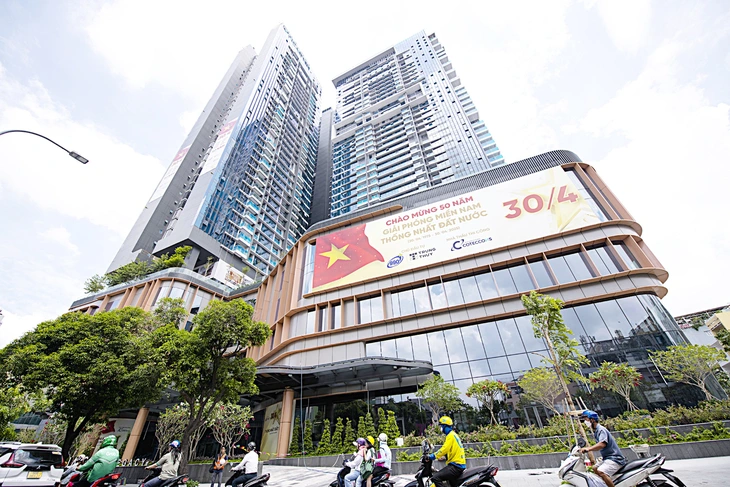

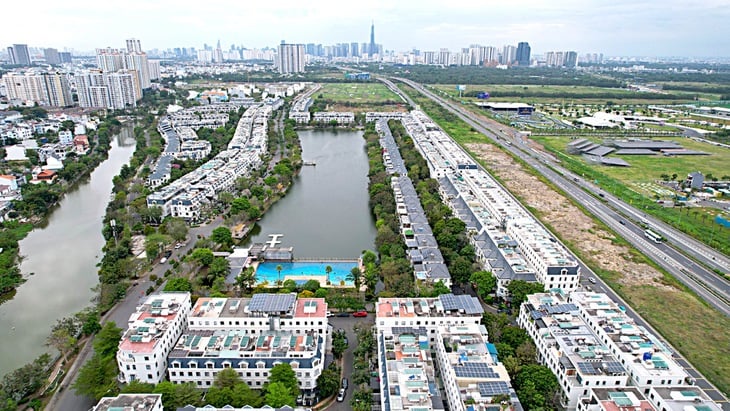











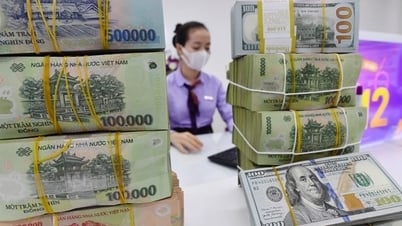

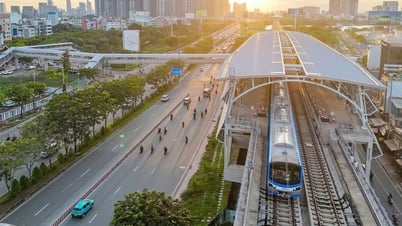





































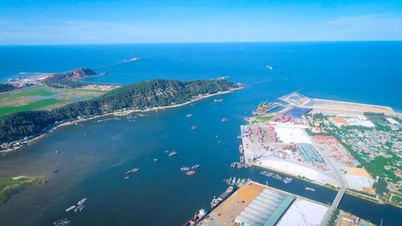







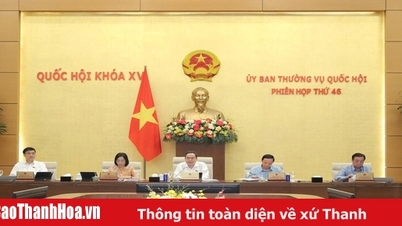



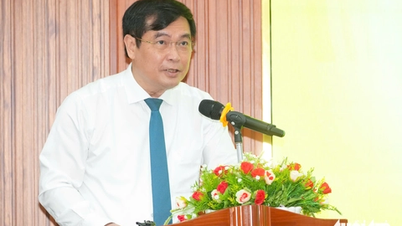
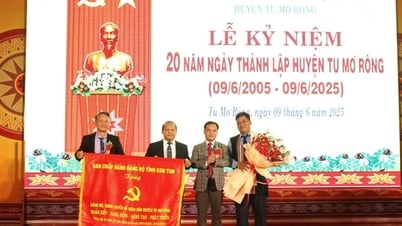










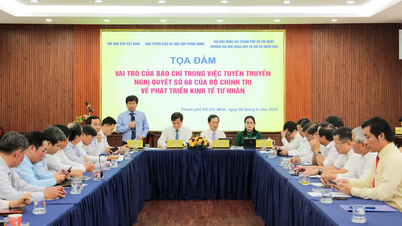

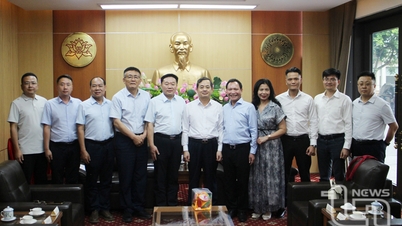



















Comment (0)